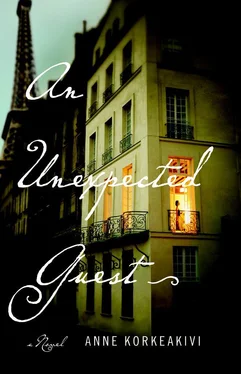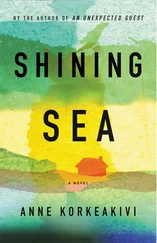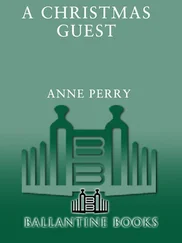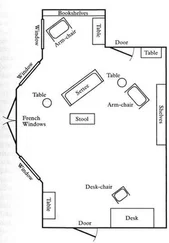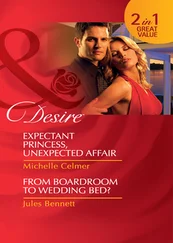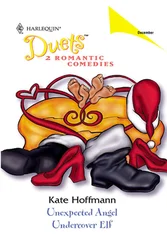Returning to the front hall, she opened the heavy door as gently as she could.
Outside, the courtyard was slippery with darkness. So bustling in the day, the Rue de Varenne yawned before her, a stretch of crooked teeth in the moonlight. She wrapped her sweater closer and wished she’d put on a coat. The early hours of the morning would come before her so-called chores were finished.

The taxi couldn’t fit into the narrow streets behind Beaubourg, the futuristic modern art museum plopped down amidst the ancient houses of the fourth arrondissement, so she had to get out and complete the last two blocks on foot. Young couples, bound in skintight black or purple jeans, cropped leather jackets, sneakers or boots, pushed by her, the girls swinging their purses, the boys throttling the necks of wine bottles. A busker wearing a bowler hat and ripped jeans played his guitar to the night, with a dog draped over one thigh, a mostly empty paper plate in front of the other. Two girls, their young faces studded with silver knobs, shared a cigarette. All the activity was disorienting after the desolation of the seventh arrondissement at night; she was flotsam, slapping back and forth against the sand, tossed by tiny but continuous breaking waves, splashed around with pieces of bark and shell and seaweed. Decades had passed since she had had a place in the chaotic nocturnal world other than in taxis or limousines. After she’d returned from Dublin, the pubs of Cambridge might as well have taken flight. That last year at Harvard, she’d hunkered down in the little room she’d hoped to share with Niall, night after night, alone, reading French and Spanish and Italian for hours. Her youth had ended when he’d asked her.
“Turn off the light,” he said.
They were sitting on her mattress, on the floor of the little room she’d newly rented. It was far from the campus, in a part of Cambridge where she normally would never have ventured, but she’d signed the lease thinking it was a place where Niall could come without being seen by any of her classmates. If she wanted him, this was the requirement.
“We’re cousins,” she’d said, the first and only time they’d ever discussed being seen around Boston in public together, “aren’t we? Not blood related, but still. We could go to a bar just like that. You know, like family. We could at least act like friends.”
“And watch some other feck looking at you like a piece of skirt?”
She turned off the light and settled back next to him. She waited for him to ease her down on the bed where she would feel his taut contained energy against her. But he didn’t. He looked at her for a long time, holding her gaze in his sharp blue eyes.
“Clare,” he finally said.
“Yes.”
“You’ve heard of Bobby Sands.”
“Yes.”
“They said he and the others were nothing but common criminals, and the screws treated them worse than that. Even after Bobby was voted MP of Fermanagh and South Tyrone. Even after he starved to death.”
She watched his face, waiting for him to continue. He seemed to be deciding something.
He got up and extracted the duffel bag from her closet. He’d stashed it there the day after they returned. Don’t you be opening it, he’d told her. She hadn’t.
He grasped the zipper hook between his thumb and forefinger and pulled. The hook slid along the tracks of the zipper, allowing the lips of the bag to part. When he’d opened it about two inches he stopped and looked at her.
White paper printed with green. The corner of a bill. A “1” followed by two “0”s.
“Ordinary, decent people. That’s all it comes down to. They stole our country from us, Clare.”
He clasped the bag in his two hands and placed it between them.
“It’s up to yourself,” he said. “You can say yea or nae.”
She saw the way his Adam’s apple rose and fell as he said it. She had laid her cheek against it, smelling the salt air on his skin, while seagulls picked around them.
She nodded.
She’d made the choice. No one had forced her. He’d said it was to help regular people, but, as a linguist, she knew better than most how any given phrase could have numerous interpretations. She’d believed what she wanted to believe, when in her heart of hearts, if she’d asked herself any hard questions, she’d have understood that that money wasn’t intended to be distributed through any church’s coffers. Just as she’d known that whatever she wasn’t supposed to look at in the back of that camper had been contraband. Ignoring wasn’t the equivalent of ignorance.
But that was long ago.
Clare gathered her sweater around her and quickened her pace. After twenty-five years, there had to be some hope for clemency.
A guardian stopped her at the door to the church, gesturing over his shoulder into its darkened cavity. Billows of clear music echoed out from behind him. Just visible under the dim light cast by a wall sconce, a sign read IIIème Festival de Musique Ancienne, 22.00. Clare checked her watch. It was nearly midnight; they must be playing an encore.
“J’ai oublié quelque chose dedans,” she told the guard, to gain entry. She had forgotten something inside or, if not forgotten, mislaid it. She took a twenty-euro bill from her wallet and placed it in the contribution basket.
The guardian looked her up and down. She knew what he was seeing. She was foreign but not touristic. She was well kept, dressed expensively. She was tall and naturally blond.
He shrugged and waved her in.
Cold rushed her as she entered the church’s ancient interior. Centuries of unheated winters seemed to have settled into its stones, a chill that no amount of summers would ever dissipate. She waited for her eyes to adjust to the dimness, then let them sweep the pews, raking the audience. Only a smattering of people were there, tossed amongst the front half of the pews like droplets of rain. A few were gray-haired, but most seemed of that indeterminate age around twenty when teenagers discover they’ve somehow become adults. Music students, probably; friends of the performers.
She sorted through them until her eyes located an older, sparer figure.
He was on the far left, in one of the last pews, several rows back from anyone else. He didn’t look up when she tiptoed in beside him. He moved over to accommodate her, as though she were returning from having stepped out briefly to make a call or use the lavatory. Chanting echoed around them, and she felt she knew this song; it was the story of her years of waiting. The sound filled her body with a supreme sadness. Defying the skeptical look of the peaked arches above them, he took her hand in his, cradling it as though it were a fragile, curious object left tossed up on the banks after the tide receded.
The music stopped and people clapped, but still he held on to her hand. People rose, some to depart, others in order to view the bowing musicians over the heads of the people already leaving. Niall stayed seated, and so did she.
People began streaming back towards the doors. He lowered his face from any hint of light.
“What kept you?” he said with a bit of a smile. He was dressed in the same clothes as earlier in the day but wearing a worn leather jacket. It looked soft against the sharp lines of his body, as though it would melt against her cheeks if she were to bury her face in it. Looking down, she could see the edges of his knees pressing through denim. He was still so handsome. That would have been another one of the reasons they’d sent him to the States to collect the money.
“I never knew you liked music,” she said. There was so much they had never talked about. They’d shared so little except for that most intimate act, a crime.
Читать дальше
